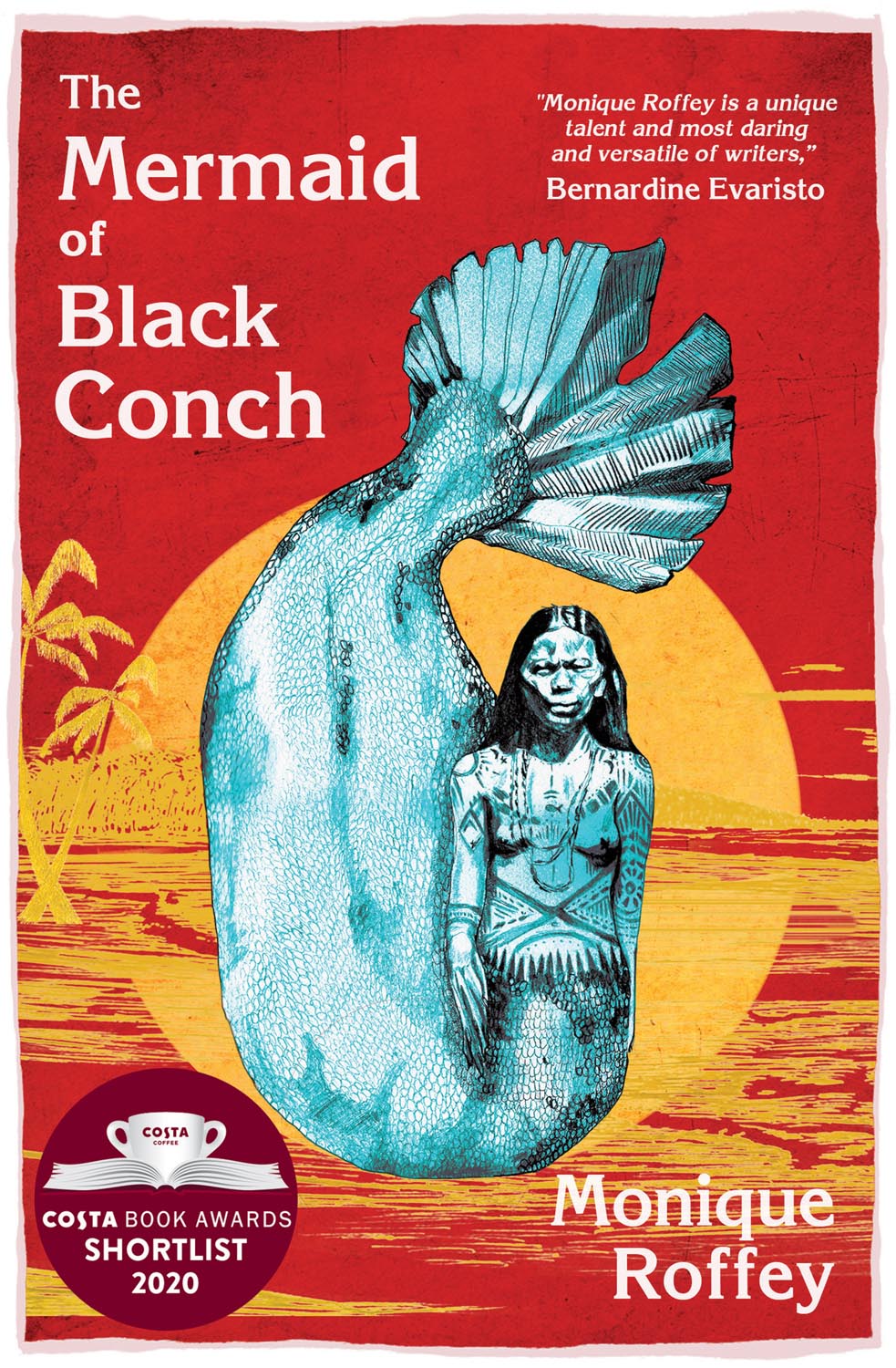The Mermaid of Black Conch
by Monique Roffey (Peepal Tree Press, 190 pp, ISBN 9781845234577)
The mermaid we meet in Trinidadian-British Monique Roffey’s seventh novel is more feral than Ariel, and that’s entirely by design. Here is new-wave feminism in scales and tangled sargassum that reaches back to antiquity to explain itself: to do no less than frame the face of embattled mystic womanhood. The site of this modern-mythological mapping is Black Conch, a fictional small Caribbean island where fishing, family, and gossip grease the mill of everyday living. Aycayia, the mermaid dredged up as brutal commercial sport by two white anglers, is a creature more ancient than anyone on Black Conch can comprehend. It’s David, humble resident with a huge heart, who tries to keep the sea siren safe. To do this, he must risk himself in ways he cannot fully comprehend.
Don’t typecast this as a fanciful fish tale. Roffey’s fabulist subtlety is on fine display here, as she navigates ardent romance with small village superstition. Aycayia’s handling, in the mercenary and misogynistic clutches of those determined to both ill treat and possess her, is difficult reading: Roffey’s lush and immersive prose demands that we bear witness. In this fairytale, the heroine bleeds. In this landscape, there is no gallantry, only complex desire and the consuming demands of the sea.
Not all is allegorically bleak in The Mermaid of Black Conch: when Aycayia speaks to us, we hear her tangled thoughts in verse, not prose. This is a genius stroke from Roffey’s arsenal: of course a mermaid thinks in poetry. “I have swum with slow steel canoa / I have swum everywhere in this archipelago,” she tells us, inviting us deeper and darker into her power. How willingly you will find yourself submerged, trailing on this unforgettable woman’s speech.
Tea by the Sea
by Donna Hemans (Red Hen Press, 256 pp, ISBN 9781597098458)
“But the one thing I know for sure, this is the one life you have and you have to make it work.” Some novels make the meat and bones of their plot out of one shining secret; Tea by the Sea feasts on a profusion of furtive mysteries. In Jamaica-born Donna Hemans’s second novel, winner of a Lignum Vitae Una Marson Award for Adult Literature, the search for answers salts a trail through Plum Valentine’s life. Where is her daughter? What will Plum do when the truth or some tessellated version of it walks into her life, after her hopes of reuniting with her child have faded? Don’t expect a facile morality play: Hemans writes with precision about the most private bacchanals of the heart, the utter vexations of the spirit. Read with a rum-soaked handkerchief.
The Assassination of Maurice Bishop
by Godfrey Smith (Ian Randle Publishers, 226 pp, ISBN 9789768286239)
Revolutions, failed or successful, only fade for those not touched by their parades of bullets and tears. Indisputably, Maurice Bishop was killed by firing squad on 19 October, 1983. What of the narrative foliage surrounding this fact? What siege of events led to this assassination, and at whose feet must ultimate responsibility be laid? Answering these questions in non-fiction is an industry in fording off the river of fact before it escapes into the open ocean of speculation. An attentive biographer, Godfrey Smith examines existing interviews and travels across the region to conduct interviews of his own. The results are compelling, certainly, and they are also dangerous: they pose a threat to anyone interested in stifling the truth. Smith’s results galvanise us against indifference, against inaction, and ultimately against a repetition of such bitter infamy.





















